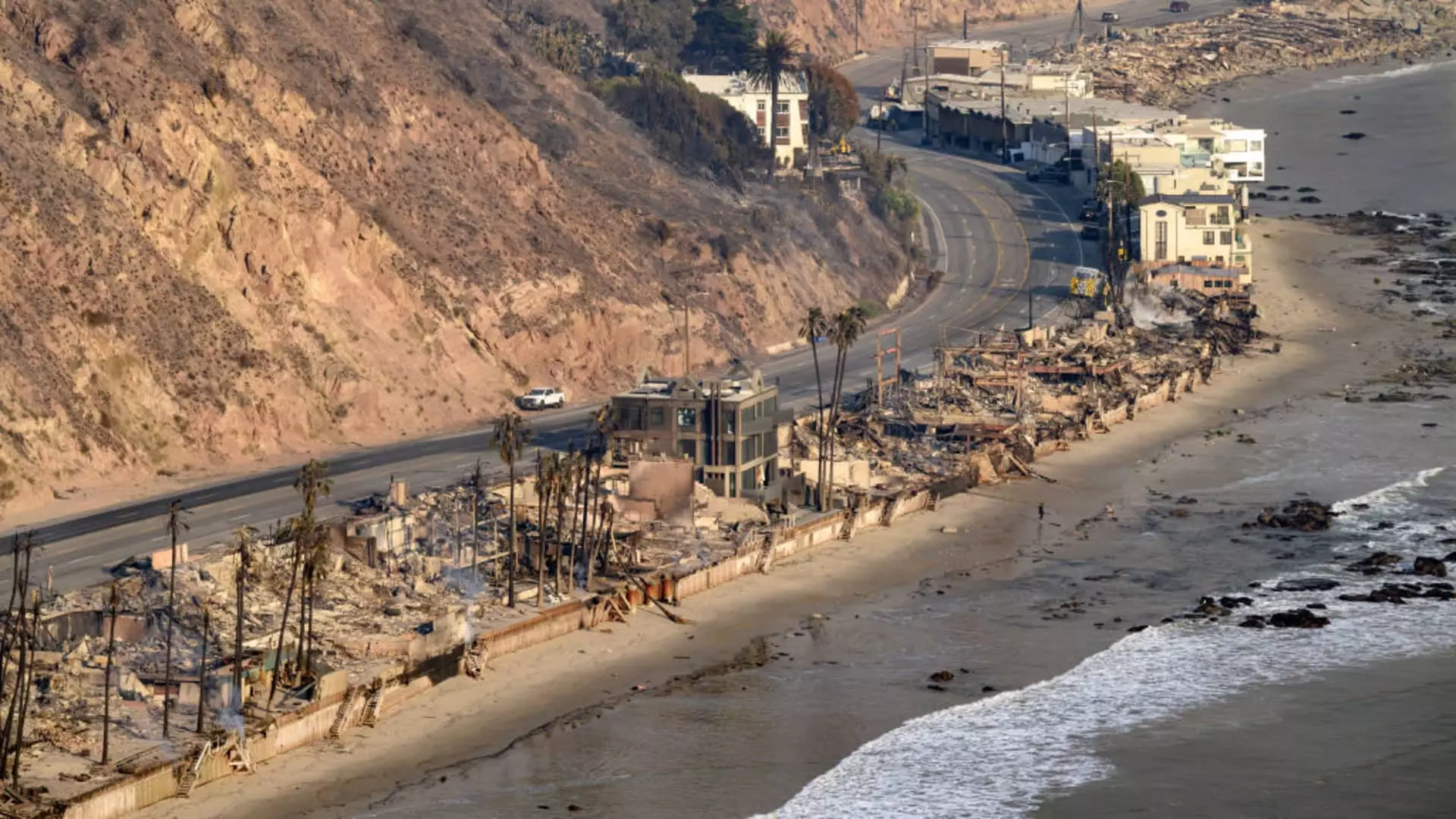As the flames of wildfires rage on in California, specifically around Los Angeles, airlines are stepping up to accommodate travelers affected by these natural disasters. Major carriers, including American Airlines, United Airlines, Southwest Airlines, and JetBlue Airways, have commenced waivers that will ease the burden on travelers whose plans have been thrown into disarray. With an escalating situation involving power outages, water shortages, and extensive property damage—over 10,000 homes and structures lost—understanding the implications for travelers has become crucial.
On the frontlines of this crisis, Los Angeles airports remain operational; however, the surrounding areas paint a different picture. While aviation activities such as take-offs and landings have not faced significant disruption, the additional challenges posed by the wildfires have warranted the implementation of flexible travel policies. The plight of local residents, particularly in regions like Pacific Palisades, where safety advisories recommend the use of bottled water, signifies the severity of the situation. Amidst this backdrop, airlines are balancing operational integrity with the safety and convenience of their passengers.
American Airlines has revealed a policy shift designed to support customers booking flights to critical L.A. airports, including Hollywood Burbank and Los Angeles International Airport. Travelers can now rebook their flights without incurring any change fees or fare differences, extending the viable travel period until January 20. Southwest Airlines, recognizing the fire’s potential disruptions, has similarly modified its approach, allowing rebooking within 14 days post the originally scheduled flights. These measures are crucial offerings that not only reflect airlines’ accountability but also their recognition of the broader community impact these disasters herald.
However, the ripple effects of the wildfires extend beyond immediate operational adjustments. Glen Hauenstein, Delta Air Lines’ president, provided insight into shifting consumer behavior on the airline’s earnings call. Though cancellations haven’t surged drastically, there has been a notable decline in ticket sales toward Los Angeles, a significant hub for both business and leisure travel. The airline monitors these trends closely, and while immediate revenue losses appear contained for the quarter, the long-term impacts of these crises remain to be fully understood.
Interestingly, historical patterns suggest that post-disaster scenarios often witness a surge in travel demand as communities begin the rebuilding process. Hauenstein pointed out that while natural calamities can deter travel in the short run, they frequently lead to increased reservations as restoration efforts commence. This duality—temporary challenge followed by rebuilding demand—requires airlines to stay agile and responsive to customer needs while maintaining robust business strategies.
The Way Forward: Safety and Rebuilding
As the situation unfolds, the significance of clear communication and passenger safety remains paramount. Travelers must be well-informed about evacuation orders, safety advisories, and the availability of essential resources such as clean water. Airlines play a crucial role in disseminating this information and aiding customers in navigating their travel plans effectively.
Furthermore, as fire crews battle relentless flames, the focus for airlines is not solely operational. Building relationships with communities, understanding the socio-economic ramifications of these disasters, and implementing supportive measures for customers and residents alike are fundamental aspects of their role. The challenge is multifaceted, framed not only by the immediate crisis but also by the airline industry’s ethical responsibility to support affected communities while ensuring travel connectivity.
Airlines are undoubtedly facing an intricate landscape shaped by the California wildfires. By staying flexible in their offerings and closely monitoring passenger behaviors, they can mitigate immediate impacts while preparing for the eventual recovery phase. As communities rally together to address the fallout from these disasters, the resilience of both the airline industry and the people affected will be tested, highlighting the need for cooperation and empathy in times of crisis.

